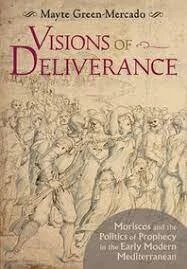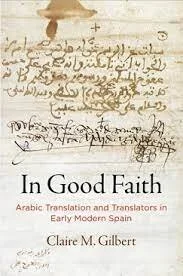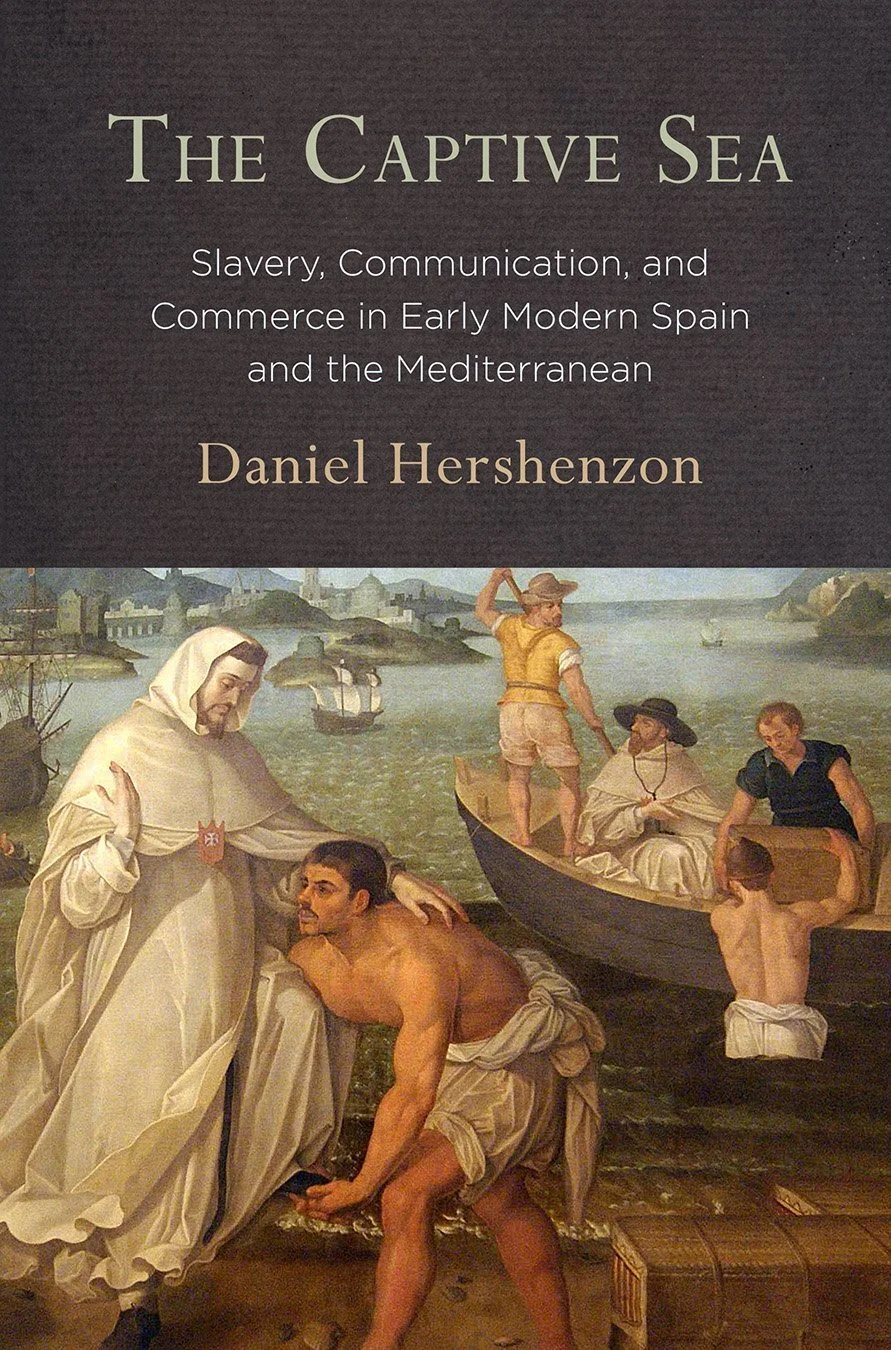The Wadjih F. al-Hamwi Prize for the Best First Book in Mediterranean Studies 2021
The 2021 prize for the best first book covered scholarly and trade publications published from 2016 to 2020 inclusive. The committee was most interested in books that broke new ground conceptually or methodologically, were comparative and/or interdisciplinary, that emphasized the intercultural/interregional/inter-religious contact, and that were “of” rather than merely “in” the Mediterranean. Although we focussed on the pre- and Early Modern, books ranging from any period were considered. Books from any of the relevant Humanities and Social Sciences disciplines were welcome, including but not limited to all fields of history, art and material culture, literary and cultural studies, anthropology, and sociology. The Mediterranean is broadly construed as the region centered on the sea, but including connected hinterlands in Europe, Sub-Saharan Africa, the western Indian Ocean, the Near East and Central Asia.
Wadjih F. al-Hamwi and family
The prize is named in honor of Wadjih Fouad al-Hamwi (1938-2021). Born and raised in Aleppo, the city he lived in throughout his life, Wadjih earned a degree in English Literature at Aleppo University where he then began to teach. Here, he earned the admiration and respect of both colleagues and the scores of students that passed through his classroom, such that he could scarecly walk down the street in Aleppo without being greeting by embraces, handshakes, and cries of Ustadh! from passersby. Eventually, he left the university to open a professional translation service, and came to be reputed as one of the top English-Arabic translators in Syria, before beginning work in tourism as well. Immensely proud of his Arab (through his father) and Ottoman (through his mother) heritages and of his Syrian homeland, he was a humane and cosmopolitan individual, whose friendships were not foreclosed by national, ethnic or religious identity, and whose noble character, generosity and humanity epitomized the best values of the Mediterranean Seminar in particular and of humanities scholarship in general. He remained in Aleppo with his family through the tribulations of the last decade, succumbing after a determined fight to COVID in March 2021. Brian Catlos, Mediterranean Seminar Co-Director had the great privilege of studying Arabic under Wadjih in Aleppo in 1992-3 establishing what became a deep friendship which endures now as a dear memory.
The next round of the Wadjih F. al-Hamwi Prize will be held in 2023. First books published from 2021 to 2023, inclusive, are eligible.
The committee for the 2021 Wadjih F. al-Hamwi Prize was:
• Brian A. Catlos: Relgious Studies, University of Colorado Boulder
• Cecily Hilsdale: Art History, McGill University
• Sharon Kinoshita: Literature, University of California Santa Cruz
The Mediterranean Seminar is happy to announce the results of the 2021 First Book Prize contest. We received an overwhelming number of entries of extremely high calibre, which made our job very challenging indeed. The committee looked for books that were rigorously researched, original and innovative, in terms of methodology, perspective, and which engaged with the Mediterranean as frame of inquiry. In the end the committee voted unanimously to award this year’s prize to Mayte Green-Mercado for her book, Visions of Deliverance: Moriscos and the Politics of Prophecy in the Early Modern Mediterranean, and to give an honorable mention to three other entries: Hannah Barker’s That Most Precious Merchandise. The Mediterranean Trade in Black Sea Slaves, 1260-1500, Claire Gilbert’s In Good Faith. Arabic Translation and Translators in Early Modern Spain, and Daniel Hershenzon’s The Captive Sea. Slavery, Communication, and Commerce in Early Modern Spain and the Mediterranean. The Mediterranean Seminar congratulates all of the entrants on their excellent scholarship and on their first book. The quality and range of the books submitted speak volumes to the robustness of our field, and we look forward to your future contributions.
Winner
Mayte Green Mercado, Visions of deliverance. Moriscos and the Politics of Prophecy in the Early Modern Mediterranean. (Cornell: 2020)
Mayte Green-Mercado’s, Visions of Deliverance. Moriscos and the Politics of Prophecy in the Early Modern Mediterranean stands out as an original and rigorously-researched work of scholarship amidst the profusion of excellent recent works on the Moriscos. Using edited and unedited sources in Latin, Spanish, Arabic, Turkish, and Aljamiado, Green-Mercado examines the internal religious life of this marginalized minority as they struggled for survival and sought to gain either recognition as Spaniards or rehabilitation as Muslims. Her entrée into this world—through the prophecies and predictions, made by Moriscos themselves or as gleaned through the reading of “new” inquisitorial records and through the reaction of the Catholic and royal establishment—is highly original and illuminates a hitherto dark corner of sixteenth-century European and Islamic history. Green-Mercado resists simplifying the analysis; rather, she presents both the Old Christians and Moriscos with admirable nuance, while at the same time eschewing both a moralizing or lachrymose approach to the subject. Altogether this is an impressive work of scholarship which demonstrates Green-Mercado’s impressive range of historical knowledge, both in terms of its geographical scope and methodological variety. The book constitutes and important “missing link” between the history of the mind and the histories of politics and society; it will undoubtedly continue to gather accolades and serve to establish the author as a very promising new scholar of Spain, Islam and the Mediterranean.
Honorable Mention
[listed in alphabetical order]
Hannah Barker, That Most Precious Merchandise: the Mediterranean trade in Black Sea Slaves, 1260-1500. (University of Pennsylvania: 2019)
Hannah Barker’s That Most Precious Merchandise: The Mediterranean Trade in Black Sea Slaves, 1260-1500 offers a ground-breaking reassessment of the structures, status, and experiences of slavery in the late medieval Mediterranean. Beyond tracing the networks of the slave trade from the Black Sea to Genoa, Venice, and Cairo, it argues that the Italian maritime powers and the Mamluk sultanate shared a similar fundamental approach to slavery. By re-assessing Black Sea slavery from the vantage point of both Italy and Egypt, the book draws on a more expansive archive of Arabic and Latin sources that, in turn, allows Barker to discern commonalities in systems and approaches to slavery across cultures—she calls this a common culture of slavery. Without eliding the distinctiveness of each cultural context, she presents as the principal themes of the book a series of conceptions and practices of slavery that cut across confessional and cultural lines. From this more capacious and comparative perspective, she upends a number of fundamental paradigms that have shaped, and limited, the scholarly terrain. The committee especially appreciated its historiographic critique of Marxist and Eurocentric perspectives, which mark That Most Precious Merchandise as a particularly important contribution to the field of Mediterranean studies.
Claire Gilbert, In Good Faith Arabic Translation and Translators in Early Modern Spain. (University of Pennsylvania: 2020)
Claire Gilbert’s In Good Faith is an impressive and original work of scholarship that demonstrates that during the “Morisco century” the Arabic language, despite its official elimination and social marginalization, remained vital and of crucial importance to Spain’s colonial enterprise. Gilbert focuses on Spanish-Arabic translators who were drawn from among the Morisco elite, and who through the medium of what she qualifies as “fiduciary translation” found agency and accrued benefits for themselves and their families as well as their larger communities, by performing this crucial service for the Spanish Habsburgs – including translating diplomatic correspondence, historical and literary texts, or religious writings. It is a study that connects the Iberian Peninsula not only to North Africa, but to the broader European, Mediterranean and Atlantic worlds at the dawn of the age of European colonialism and Orientalism. The study, based on an impressive array of archival and literary sources in Latin, Arabic and Spanish, combines prosopographical micro-historical approaches with broader analyses, connecting the world and work of these translators to the larger transformations in European politics, culture, and society in the Early Modern era.
Daniel Hershenzon, The Captive Sea : Slavery, Communication, and Commerce in Early Modern Spain and the Mediterranean. (University of Pennsylvania: 2018)
Daniel Hershenzon’s The Captive Sea: Slavery, Communication and Commerce in the Early Modern Mediterranean brings to light the way networks of captivity and ransom operating between Hapsburg Spain, Ottoman Algiers, Morocco, and beyond helped shape the Mediterranean as an integrated region in the late sixteenth and early seventeenth centuries. Seamlessly blending syntheses of previous scholarship with original archival research, Hershenzon tracks the interactions of various agents involved in the ransom economy— imperial bureaucrats, Trinitarians and Mercedarians, merchants, diplomats, renegades. Combining a wide-angle frame of geopolitics with the particular cases registered in letters, petitions, Inquisition reports, and other archival sources, he reconstructs some remarkable stories that illustrate the complexity of networks of interaction and circulation: stories of individual captives like Fatima, daughter of an Algerian Janissary, or the connected histories of captives (in some cases of quite modest social station) from both sides of the religious divide, repatriated through the correspondence of wives or mothers back home. Especially welcome is his attention to writing as social practice, from the asymmetry of archival sources from Christian Spain and Muslim North Africa, to the generic structure of sources like captivity narratives and martyrologies, to his keen awareness of the performative aspect in the narrative construction of letters, to the interplay between textual material and oral sources of news and rumor. The Captive Sea is a richly textured contribution to the growing scholarship on the early modern Mediterranean.




